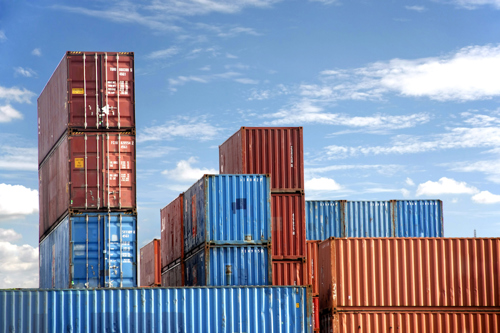- Commercial and Economic Law
- Leo Peeters - Ann Vranken
- Incoterms® , Incoterms® 2020 , ICC , international commercial terms , export , import
The International Chamber of Commerce (ICC) has launched new Incoterms® 2020. This is a more modern version of the Incoterms ® 2010 because it takes into account the very latest evolutions in international trade, and is clearer and more user-friendly.
1. Incoterms®, what does it mean?
Incoterms® is a shortened term for international commercial terms that are known and accepted worldwide by anyone who imports or exports goods.
These conditions explain a set of 11 of the most common-used three-letter terms (e.g. CIF, DAP, etc.), reflecting business-to-business practice in contracts for the sale and purchase of goods.
They can be used as much for the trading of a bulk cargo of iron as for five containers of electronic equipment or ten pallets of airfreighted fresh flowers.
Then a lot of questions arise, namely who is responsible for the transport, who determines the packaging, who bears what costs and when, who pays for the required goods and purchase transport documents, when is the risk transferred with regard to the goods, who must complete the customs formalities (customs clearance) and bear the costs thereof (import costs), who takes out which insurance for which part of the transport, who carries out the goods inspection , etc. ...
Then Incoterms®, which follow the transport from seller to buyer, are accepted to give an answer.

2. What do the Incoterms® 2020 bring us?
We give you the most important changes to the Incoterms® 2020 below:
- The Incoterms® 2020 are much clearer and more user-friendly. The "explanatory Notes for Users" have replaced the "Guidance Notes";
- DAT (Delivered at Terminal) now becomes DPU (Delivered at Place Unloaded). This makes it clear that delivery to a location other than a terminal is also possible.
- The FCA (Free Carrier) Incoterms® rule is given an additional option, namely the "bills of lading with an on-board notation", which means that this Incoterms® will be used even more as the most suitable rule for container transport.
The buyer and the seller can agree that the buyer will instruct its carrier to issue an on-board bill of lading to the seller after the loading of the goods, the seller then being obliged to tender that bill of lading to the buyer, typically through the banks. ICC also gives an answer to a demonstrated need in the marketplace. - CIF and CIP now contain different levels of insurance cover, namely comprehensive transport insurance with the CIP while CIF only requires a minimum insurance cover. However, the insurance cover can still be negotiated between buyer and seller.
- FCA (Free Carrier), DAP (Delivery at Place), DPU (Delivered at Place Unloaded) and DDP (Delivered Duty Paid) now include the option for the buyer and seller to arrange the transport of goods with their own means of transport in instead of hiring a third party for this;
- The Incoterms® 2020 introduce more prominent security-related obligations for the transport of the goods and their costs.
- There is more transparency with regard to the distribution of costs; the Incoterms® 2020 provide a very useful overview of the costs incurred by the buyer and seller.
The distinction between the rules for all modes of transport (consisting of EXW, FCA, CPT, CIP, DAP, the newly appointed DPU - the old DAT - and DDP) and the rules for sea transport and inland waterway transport (consisting of FAS, FOB, CFR and CIF) continue to exist under the Incoterms® 2020. It is important to underline the distinction between the two families of Incoterms® rules so that the right rule is used for the contract of sale depending on the means of transport used.
3. How best to incorporate the Incoterms® rules?
Incoterms® are only valid if all parties agree and they only apply to the parties that have consented with them.
If parties want the Incoterms® 2020 rules to apply to their contract, the safest way to ensure this is to make that intention clear in their contract, through words such as
"[the chosen Incoterms® rule] [named port, place or point] Incoterms 2020".
Following elements are important in this wording:
- Which version of the Incoterms® rules applies to the contract.
The Incoterms® 2020 apply from 1 January 2020.
But previous versions of the Incoterms®, and especially those from 2010, will remain in force for the companies that wish to do so. This is only the case when all contracts explicitly refer to the chosen previous version.
If this is not the case, the latest version, Incoterms® 2020, applies. - The place named next to the chosen Incoterms® rule is even more important.
Depending on which Incoterms® 2020 rule is chosen, that place will identify either the place or port at which the goods are considered to have been "delivered" by the seller to the buyer, the place of "delivery", or the place or port to which the seller must organise the carriage of the goods, i.e. their destination, or, in the case of the D rules, both. - When incorporating a particular Incoterms® 2020 rule into a sale contract, it is not necessary to use the trademark symbol.
If you would like more information or assistance, please do not hesitate to contact us on +32 (0) 2 747 40 07 or via info@seeds.law.




